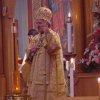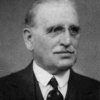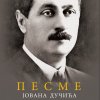Bishop Mitrofan Kodić, nee Radovan, was born on 4 August, 1951, in the village Ljuša, Šipovo, Bosnia, Yugoslavia. Radovan completed his elementary studies in 1966. He went to study further at the seminary in the Krka monastery in Croatia, Yugoslavia. At the same time, he entered the brotherhood of the monastery. In 1970, Radovan was tonsured to be a monk, and he was given the name Mitrofan on the eve of the Feast of the Entrance of the Most Holy Mother of God into the Temple (3 December/20 November). He was ordained to the Holy Diaconate by Bishop Stefan (Boca) of Žiča. In 1971, the Hierodeacon Mitrofan (Kodić) graduated from the seminary of the Krka Monastery, while on 6 January, 1974, he was ordained to the holy priesthood in the monastery by Bishop Stefan (Boca).
In 1975, the Hieromonk Mitrofan entered the Faculty of Theology in Bucharest, Romania. He completed his studies, and he graduated in 1977. He then returned to the Krka monastery. There, he was assigned to be a “trainee” (supplent) in the Seminary of the Three Holy Hierarchs in the Krka Monastery. In 1987, the Hieromonk Mitrofan was assigned to serve as the rector of the seminary.
In May, 1987, the Hieromonk Mitrofan was elected by the Assembly of Bishops of the Serbian Orthodox Church to be the Vicar bishop of the Toplica diocese.
On 12 July (29 June) of 1987, during the Divine Liturgy, Patriarch German, together with four bishops, ordained the hieromonk Mitrofan to the Episcopate. Bishop Mitrofan was assigned to be the Vicar-Bishop of Toplica, and also to serve as the assistant to the administrator of the Diocese of Midwestern America, Bishop Sava.
Later he was administrator until 1991 when he was elected Bishop of the Eastern American Diocese.
In 1992 the reconciliation established canonical unity in the Serbian Orthodox Church in the US and Canada. With such an undertaking all the canonical problems were removed. The existing ranks of the hierarchs and clergy in the schism were recognized together with all their priestly activities, sacraments and rites. It would take another eighteen years to establish administrative unity on this continent.
In 1997, Bishop Mitrofan earned his Ph.D. degree in Belgrade with a theme, “The Mystery of Christ According to the Epistles to the Ephesians, Philippians and Colossians of the Holy Apostle Paul”. Bishop Mitrofan served also as the Professor of New Testament at the Saint Sava School of Theology in Libertyville, Illinois.
Faithful to his monastic roots and calling, Bishop Mitrofan enjoys celebrating the services of the Church. He is an authority on the intricacies of the many different services. Bishop Mitrofan sets an example of life-long learning for the clergy and the faithful by participating in national conferences and by his continued personal study. Christian education of the young people is a priority for Bishop Mitrofan. He is the Dean of the St. Sava School of Theology in Libertyville, Illinois.
During his archpastorate, the Eastern Diocese of the USA saw an expansion of missionary activities. During his first ten years there, six mission parishes were established.
Bishop Mitrofan has also been an exemplary model of Christian stewardship. When the hardship of war came to Bosnia, Kosovo and elsewhere in Serbia, he was resolute and articulate in securing aid for those who were in great need.
By the will of God and the grace of the Holy Spirit at the regular Assembly of the Bishops of the Serbian Orthodox Church, held at the Patriarchate in Belgrade from May 14–25, 2016, Bishop Mitrofan was chosen to be the Bishop of the Serbian Orthodox Diocese of Canada.
The Canadian diocesan center is at the Holy Tranfiguration Monastery at Campbellville, near Milton, Ontario.
On September 18, 2016, Bishop Mitrofan was enthroned to be the ruling Bishop of the Serbian Orthodox Diocese of Canada. The service took place at the All Serbian Saints Serbian Orthodox Church in Mississauga, Ontario. Patriarch Irinej presided at the Divine Liturgy, together nine other bishops, as well as more than 50 priests.
A scholar and writer, Vladika Mitrofan has published different theological books and articles. From the Romanian, Vladika Mitrofan translated into English: “Community and Spirituality in the Orthodox Liturgy”, “Orthodox Dogmatics”, “The Immortal Image of God”, “Orthodox Moral Theology”, and “The Gospel Image of Christ” by Dumitru Staniloae, and also “The Romanian Patericon I and II” and the “Dictionary of Orthodox Theology” by Ioanichie Bălan.
He has written two books: “The Teaching of St. Apostle Paul on the Church” (published in 1991 in Chicago, translated into English), and “Introduction to the Holy Scriptures, the New Testament”.
The writings of Bishop Mitrofan have appeared in “The Path of Orthodoxy” and “The American Srbobran.”





